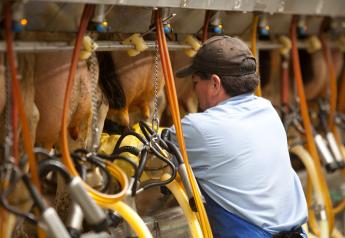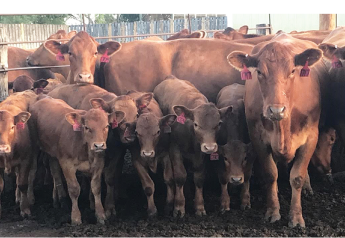Congress To Address Veterinary Shortages, Student Debt

Congress has reintroduced the Veterinary Medicine Loan Repayment Program Enhancement Act (VMLRPEA) to address student debt and veterinary shortages.
The legislation would expand on the VMLRP, which provides food animal and public health veterinarians up to $25,000 a year for student loan repayment in exchange for at least three years of service in one of the U.S. Department of Agriculture (USDA)-designated rural veterinary shortage areas.
The USDA declared 221 shortage areas in 48 states for 2021. If enacted into law, the bill would enhance the VMLRP by ending the federal withholding tax on program awards, thus freeing up additional funding and allowing the program to reach more communities that need veterinary services in each cycle. The AVMA is advocating for the removal of the tax on the VMLRP awards.
“The proposed legislation reintroduced today is a common-sense solution to enhancing a program that helps address two of the biggest challenges the veterinary profession faces – student debt and rural veterinary shortages,” said Dr. Douglas Kratt, AVMA President. “Eliminating the tax on VMLRP service awards would allow more veterinarians to reach rural communities that need their essential services. We applaud this action taken by Congress and the AVMA looks forward to working with the House and Senate to enact this bill into law.”
As a result of the current withholding tax on VMLRP service awards, 37% of the limited federal funding provided to the program ends up going back to the U.S. Department of Treasury. This tax severely hinders the effectiveness of the VMLRP, which consistently has designated shortage areas that are left open because of inadequate funding. Since 2010, 1,632 veterinarians have applied to the VMLRP, and only 552 have received service awards. By removing the tax, the program could better utilize existing funds to reach more rural communities. The AVMA encourages the veterinary community to contact Congress on this issue.
The VMLRPEA was reintroduced in the House of Representatives by Rep. Ron Kind (D-WI) and Rep. Adrian Smith (R-NE). Veterinarian Rep. Kurt Schrader (D-OR) and Rep. Dusty Johnson (R-SD), co-chairs of the Veterinary Medicine Caucus, are original cosponsors to the bill. It is expected that a Senate companion bill will be reintroduced soon.
“Veterinarians are a critical part of Wisconsin’s agricultural and rural economy, yet many communities are facing a shortage of animal care professionals,” said Rep. Kind. “This bill will help increase opportunities for veterinarians to practice in communities in need across Wisconsin, ensuring a healthy and safe food supply chain.”
Educational debt has a significant impact on the career choices of young veterinarians and is a major contributor to veterinary shortages since veterinary salaries in rural areas are often lower than those in urban areas. In 2020, the average student debt for graduating veterinarians who borrowed rose to $188,000. VMLRPEA would help alleviate this student debt burden while recruiting veterinarians to states that need their services to maintain animal and public health.
“Veterinarians are critical to animal agriculture, and farmers and ranchers in underserved areas like rural Nebraska depend on them,” said Rep. Smith. “I am glad to support this legislation to put veterinarians on a level playing field with the other rural health providers who already have their loan repayments exempt from federal income tax.”
“Recruitment and retention of veterinarians in rural practice continue to be a challenge for the profession,” said Dr. K. Fred Gingrich, Executive Director of the American Association of Bovine Practitioners (AABP). “The VMLRP has proven successful with retention; however, the tax implications for the award decreases its impact factor. AABP supports the passage of the VMLRP Enhancement Act to further the reach of this program to veterinarians in rural practice. Retaining these colleagues in underserved areas has implications on animal health, food safety, and welfare.”
About the AVMA:







